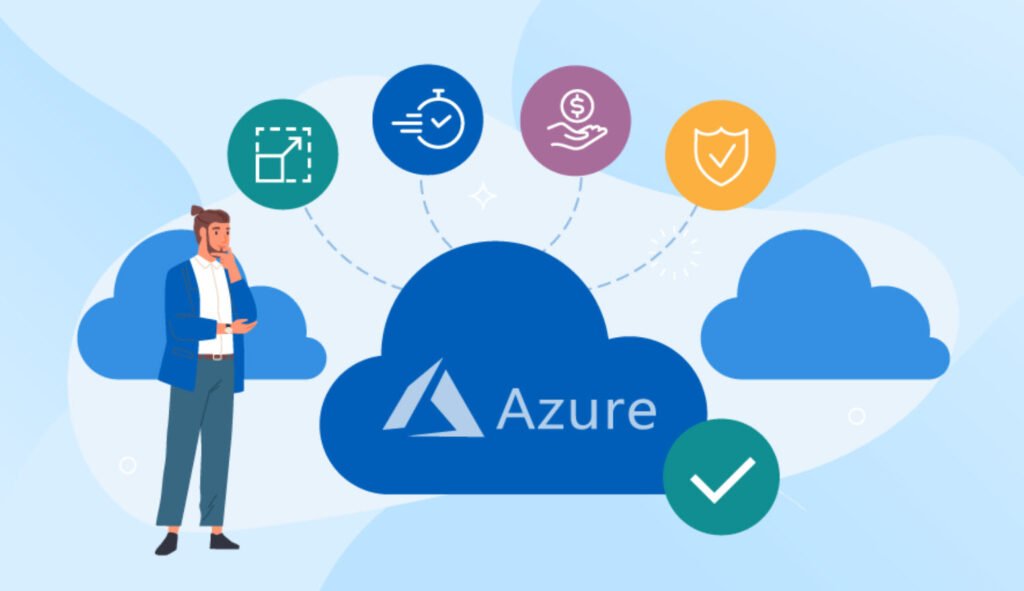
Microsoft Azure, one of the leading cloud computing platforms, offers a plethora of services designed to cater to various business needs. These services empower organizations to develop, deploy, and manage applications and data in a secure, scalable, and flexible environment. In this article, we will delve into some of the key Azure services that have revolutionized the way businesses operate in the cloud.
1. Compute Services
Azure’s Compute Services provide a diverse range of options for running applications and workloads. The cornerstone of this category is Azure Virtual Machines (VMs), which offer both Linux and Windows-based instances. VMs enable users to have complete control over the virtualized computing environment, making them ideal for hosting complex applications or running specialized software.
Cloud Services are designed to streamline the deployment of cloud applications, providing a platform to manage and scale web and worker roles. App Services, on the other hand, offer a comprehensive set of options such as Web Apps, Mobile Apps, Logic Apps, API Apps, and Function Apps. These services significantly simplify the development and management of modern applications.
For high-performance computing tasks and parallel processing, Azure offers Batch, allowing organizations to execute large-scale compute jobs efficiently. Additionally, Azure provides RemoteApp, which enables remote access to applications, and Service Fabric, a robust microservices platform for building scalable, reliable, and easily manageable applications.
2. Data Services
Azure’s Data Services cater to the growing demands of data storage, processing, and analysis. Microsoft Azure Storage constitutes several services, including Blob storage for unstructured data, Queue storage for messaging between web components, Table storage for NoSQL data, and Azure Files for file sharing across applications.
For managing relational databases, Azure SQL Database offers a fully-managed, scalable, and intelligent SQL database service. DocumentDB is designed for NoSQL document databases, providing seamless scaling and low-latency queries. StorSimple, on the other hand, offers hybrid cloud storage arrays that combine on-premises storage with Azure storage for cost-effective data management.
To enhance the performance of applications that require in-memory caching, Azure offers the Redis Cache, which provides low-latency access to frequently used data.
3. Application Services
Azure’s Application Services focus on providing the tools and services required to build, manage, and operate applications effectively. Azure Active Directory (Azure AD) serves as a comprehensive identity and access management solution, enabling secure user authentication and authorization across applications and services.
Service Bus facilitates seamless communication between distributed applications and services, helping build reliable and scalable messaging solutions. HDInsight, an Apache Hadoop-based service, supports the processing of vast amounts of data, enabling big data analytics and insights.
Azure Scheduler allows users to create job schedules for recurring tasks, while Azure Media Services facilitate the delivery and consumption of media content at scale.
4. Network Services
Azure’s Network Services form a crucial aspect of the platform, providing the necessary infrastructure for secure and efficient networking in the cloud. Virtual Networks allow users to create private, isolated network environments within Azure. ExpressRoute enables users to establish private connections between on-premises data centers and Azure, enhancing security and reliability.
Azure DNS provides a scalable and reliable domain name system (DNS) service, enabling users to manage domain names and route traffic to applications hosted on Azure. Azure Traffic Manager offers global load balancing and traffic routing for improved application performance and availability.
Conclusion
Microsoft Azure’s extensive array of services empowers organizations to harness the full potential of cloud computing. From scalable compute resources and versatile data services to robust application and networking tools, Azure offers a comprehensive and reliable platform for businesses of all sizes. As technology continues to evolve, Azure will undoubtedly keep innovating and expanding its services, further shaping the future of cloud computing.
You may also like:- How To Fix the Crowdstrike/BSOD Issue in Microsoft Windows
- MICROSOFT is Down Worldwide – Read Full Story
- Windows Showing Blue Screen Of Death Error? Here’s How You Can Fix It
- A Guide to SQL Operations: Selecting, Inserting, Updating, Deleting, Grouping, Ordering, Joining, and Using UNION
- Top 10 Most Common Software Vulnerabilities
- Essential Log Types for Effective SIEM Deployment
- How to Fix the VMware Workstation Error: “Unable to open kernel device ‘.\VMCIDev\VMX'”
- Top 3 Process Monitoring Tools for Malware Analysis
- CVE-2024-6387 – Critical OpenSSH Unauthenticated RCE Flaw ‘regreSSHion’ Exposes Millions of Linux Systems
- 22 Most Widely Used Testing Tools








